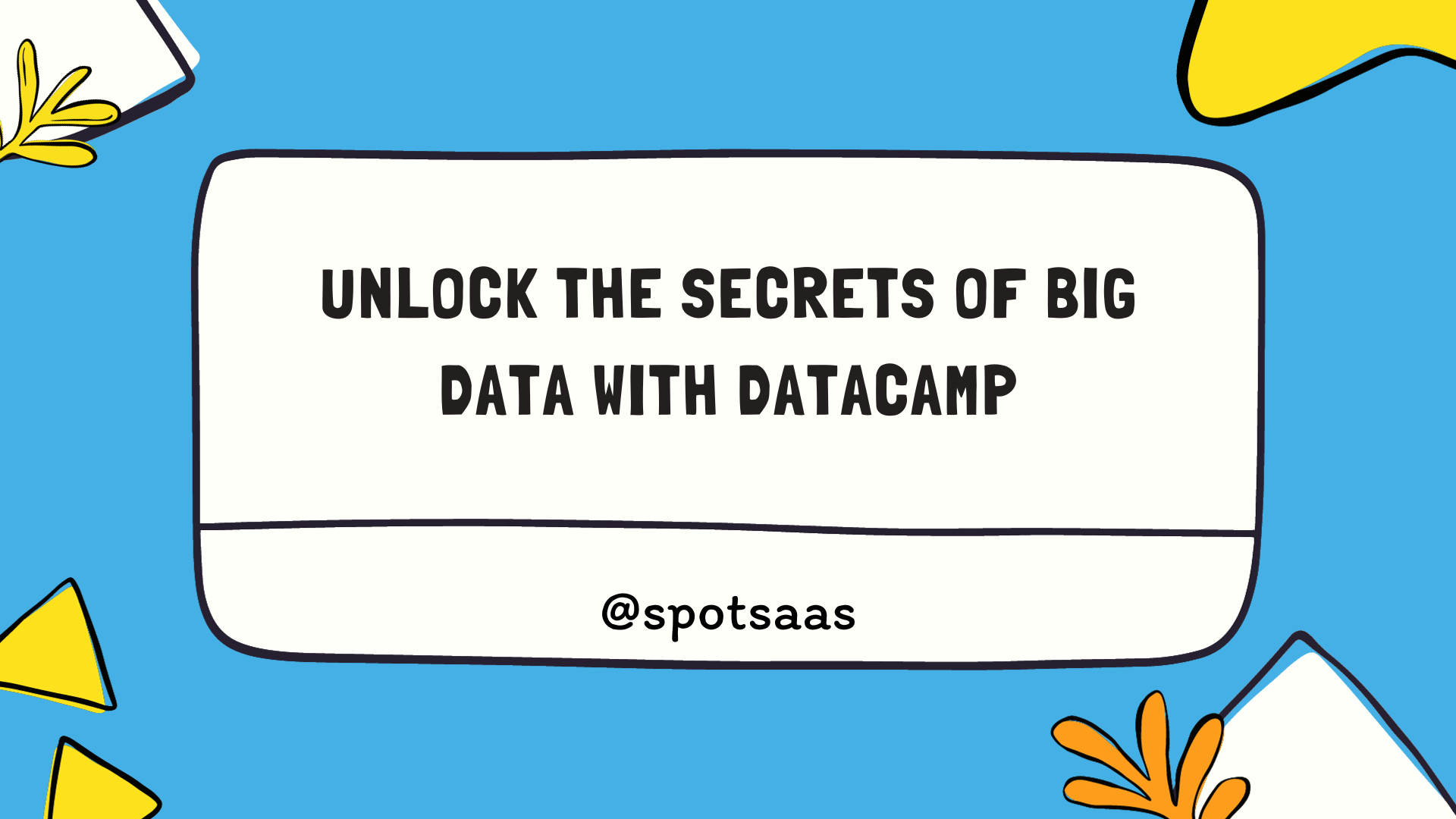In 2024, it’s predicted that more businesses will integrate these technologies into their operations for increased efficiency.
This article aims to guide you through this process, offering crucial factors to consider, key features to look for and tips on how to make a confident purchase decision.
What is Construction Management Software?
Construction Management Software is a tool that helps with building tasks. It aids in planning, executing, and overseeing a construction project. This software keeps all data in one place.
You can track work, check cash flow, and handle other key parts of your job. With it, teams stay on the same page during the whole build process.
This computer program also makes life easier for builders by saving time and reducing stress. It gives you an easy way to watch over all aspects of work from start to finish. You have clear insight into how much of the budget gets used up at any given point in time.
Important Factors to Consider When Choosing Construction Management Software
When choosing construction management software, it is crucial to consider several important factors. First and foremost, you need to determine your budget and find a solution that fits within your financial constraints.
Additionally, compatibility with your existing systems is essential to ensure a smooth integration process. Customization options should also be considered as they allow you to tailor the software according to your specific needs.
Lastly, scalability is an important factor as it allows for future growth and expansion of your business.
Budget
Money plays a big part in picking software. You need to know how much the software costs before you buy it. Some construction management software may have a high price tag. But they offer top-notch features that can help your work run smoother.
On the other hand, there are low-cost or even free options out there too! These might be enough if your needs aren’t as complex. It’s all about finding the right fit for what you can spend and what you need for your projects.
Compatibility with existing systems
Your current system plays a key role in picking new software. The software you pick should work well with the systems you use now. This makes it easy for your team to adapt and learn.
It also helps keep your data safe during the change. Choose construction management software that works with your existing tools right away. Don’t let things like email, other apps, or even hardware cause problems.
Customization options
Construction management software should offer customization options to meet the unique needs of your business. This allows you to tailor the software to fit your specific workflows and processes, making it more efficient and effective.
With customization options, you can adapt the software interface, reporting features, and other elements to match your company’s branding and preferences. This ensures that all team members are comfortable using the software and can easily navigate through its features.
Customization also allows for seamless integration with existing systems, enhancing productivity and reducing manual data entry. By choosing a construction management software with robust customization options, you can optimize its functionality for maximum performance in your construction projects.
Scalability
Scalability is an important factor to consider when choosing construction management software. It refers to the software’s ability to grow and adapt as your business needs change over time.
With scalable software, you can easily add new users, projects, and features without experiencing any limitations or performance issues. This ensures that your construction management software will continue to meet your needs as your business expands.
So when selecting a construction management software solution, make sure it offers scalability to support your future growth.
Key Features to Look for in Construction Management Software
When choosing construction management software, it is important to look for key features that can streamline project tracking and scheduling, enable efficient document management, provide collaboration and communication tools, offer reporting and analytics capabilities, and ensure mobile compatibility.
Project tracking and scheduling
Project tracking and scheduling are crucial aspects of construction management software. With the right software, you can easily track the progress of your projects and ensure that everything is on schedule.
This helps you stay organized and meet deadlines effectively. The software allows you to create timelines, assign tasks to team members, and monitor their progress in real-time. You can also set reminders and alerts to keep everyone informed about upcoming milestones or deadlines.
By having a clear overview of your project’s timeline, you can identify any potential delays or issues early on and take corrective actions promptly. Additionally, you have access to historical data that allows for accurate forecasting and planning for future projects.
Document management
Document management is an important feature to consider when choosing construction management software. It allows you to store, organize, and access project-related documents in a centralized location.
With document management capabilities, you can easily upload and share files such as blueprints, contracts, permits, and change orders with your team members. This helps streamline communication and collaboration among different stakeholders involved in the construction project.
Additionally, document management ensures version control and eliminates the need for paper-based documentation, reducing the risk of errors or loss of important information. Some popular construction management software options that include robust document management features are Procore, Buildertrend, and Autodesk BIM 360 Docs.
Collaboration and communication tools
Effective collaboration and communication tools are essential in construction management software. These tools enable seamless coordination between team members, subcontractors, and stakeholders throughout the project lifecycle.
With features like document sharing, real-time messaging, task assignments, and notifications, these tools ensure that everyone is on the same page and can effectively communicate updates or issues as they arise.
This promotes efficiency, reduces delays, and improves overall project productivity. Construction management software options such as Procore and Buildertrend offer robust collaboration and communication capabilities to streamline workflows and enhance project success.
Reporting and analytics
Construction management software should include robust reporting and analytics capabilities. These features allow users to track project progress, monitor performance, and make data-driven decisions.
With reporting and analytics tools, construction professionals can generate real-time reports on various metrics such as budget, schedule, subcontractor performance, and materials usage.
This information helps identify areas for improvement, streamline processes, and ensure projects stay on track. Additionally, analytics features provide insights into historical data trends, allowing for better forecasting and resource allocation in future projects.
Mobile compatibility
Construction management software with mobile compatibility is essential for today’s construction industry. With the increasing use of smartphones and tablets on job sites, having software that can be accessed and used on mobile devices is crucial.
This allows construction professionals to stay connected and productive while on the go. Mobile-compatible software enables easy access to project information, scheduling tools, document management, collaboration features, and reporting capabilities from anywhere at any time.
It helps streamline communication between teams, improves efficiency, and ensures that everyone is working with the most up-to-date information. So when choosing construction management software, make sure it offers robust mobile compatibility to meet the demands of a modern construction workflow.
How to Choose and Purchase the Best Construction Management Software
When it comes to choosing and purchasing the best construction management software, there are several steps you can follow. Research and compare different options available in the market, considering factors such as pricing models, integration capabilities, and essential features for your business.
Take advantage of free trials and demos to test out the software firsthand. Additionally, evaluate customer reviews and expert analysis to get a better understanding of each software’s performance and reliability.
By carefully considering these factors, you can make an informed decision that will meet your construction management needs effectively.
Research and compare options
To choose the best construction management software, it’s important to research and compare your options. Look for software that is intuitive and accessible, with excellent document control features.
Consider factors like budget, compatibility with existing systems, customization options, and scalability. It’s also crucial to evaluate key features such as project tracking and scheduling, document management, collaboration tools, reporting and analytics, and mobile compatibility.
Additionally, consider free trials or demos, read customer reviews and expert analysis, look for integration capabilities, and determine which features are essential for your business.
Consider free trials and demos
Before committing to any construction management software, it’s important to consider free trials and demos. These allow you to test out the software and see if it meets your needs before making a purchase.
Free trials give you the opportunity to explore the features and functionalities of the software, while demos provide a guided tour of how it works. By taking advantage of these options, you can get a firsthand experience of the software’s user interface, ease of use, and overall suitability for your construction projects.
It’s also a chance to evaluate if the software aligns with your business processes and workflows. So don’t forget to take advantage of free trials and demos when choosing construction management software – they can help you make an informed decision based on practical experience.
Evaluate customer reviews and expert analysis
To make sure you choose the best construction management software, it’s important to evaluate customer reviews and expert analysis. This will give you insights into how well the software performs in real-world situations and what industry experts have to say about its features and usability.
Customer reviews can provide valuable feedback on the software’s strengths and weaknesses, helping you determine if it meets your specific needs. Expert analysis can offer a more objective perspective on the software’s capabilities and potential drawbacks.
By considering both customer reviews and expert analysis, you can make an informed decision when selecting construction management software for your business.
Look for integration capabilities
Integration capabilities are an important factor to consider when choosing construction management software. The ability of the software to integrate with other systems and tools that your business uses can greatly enhance efficiency and streamline processes.
Look for software that offers seamless integration with accounting software, project scheduling tools, document management systems, and other relevant applications. This will ensure smooth data flow between different platforms and eliminate the need for manual data entry or duplicate work.
Integrations can help you save time, reduce errors, and improve overall productivity in managing your construction projects.
Determine which features are essential for your business
To choose the best construction management software for your business, it’s important to determine which features are essential. Consider what functionalities you need to effectively manage your projects.
Do you require project tracking and scheduling tools? Document management capabilities? Collaboration and communication features? Reporting and analytics options? Also, think about whether mobile compatibility is necessary for your team.
By identifying these essential features, you can narrow down your choices and find a software solution that meets your specific needs and improves efficiency in the construction process.
Conclusion
In conclusion, choosing the best construction management software is crucial for efficient project management. By considering factors like budget, compatibility, customization options, and scalability, you can find the right software for your business needs.
Look for key features such as project tracking, document management, collaboration tools, reporting capabilities, and mobile compatibility. Conduct thorough research and evaluations of customer reviews to make an informed decision.
With the right software in place, you can streamline your construction processes and improve productivity.



